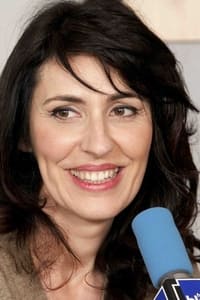
Birth Day: 1969-07-18
Place of birth: Thionville, Moselle, France
Sophie Huriaux (born July 18, 1969 in Thionville), better known by her stage name La Grande Sophie, is a French singer-songwriter who got her start in the mid-1990s in the Paris alternative scene. Sophie lived the whole of her youth in Port-de-Bouc near Marseilles, where her parents moved to when she was quite young. She had her first musical idea while watching Jacques Demy's film Peau d'Ane on television. She began playing guitar at age nine, then at 13 she started a band called "Entrée interdite" with her brother and her neighbor. As well as performing covers of hits, she wrote and composed for this group, where she was the leading vocalist and musician. In June 1983 the first Fête de la Musique took place in France. Almost 14 years old, Sophie managed to convince the management of the school to let her group perform. At first attracted to the visual arts, especially sculpture, she studied at the École des beaux-arts in Marseilles. She continued to write, compose, and play covers, as well as her own songs, at sidewalk restaurants in Marseilles. After two years of courses in fine arts she chose to quit her studies to dedicate herself exclusively to music. In 1994, she met Julien Bassouls, the entrepreneur of "Life, Live in the Bar", a group which arranged concerts for young artists, and went up to Paris in 1995. She played in many bars and small venues there, accompanied by guitar and bass drum. In collaboration with other young artists, including Jean-Jacques Nyssen, Clarika and Philippe Bresson, she participated in writing and staging a musical, La Marée d'Inox, played at the Théâtre Jean Vilar in Suresnes in February 1996. She created "kitchen miousic", which she defined as considering musical activity as little different from any other daily task. This popular and lifelike approach to writing and performing music was one of her distinctive characteristics. This self-definition also expressed her desire not to be pigeonholed into a specific genre. Her influences ranged from Jacques Dutronc to Chrissie Hynde of the Pretenders through Polly Jean Harvey and Joe Hisaishi. In 1996 she was invited to the Francofolies festival in La Rochelle. Next year, she released her first self-produced album, La Grande Sophie s'agrandit (La Grande Sophie grows up), on the independent label "Les compagnons de la tête de mort". In 2001, accompanied by other musicians, she released her second album, Le Porte-bonheur (Lucky Charm), on a major label. This album sold over 50,000 copies, thanks to the single "Martin". On May 11, 2004, she released her third album, Et si c’était moi (If it were me), which earned her her first Victoire de la musique in 2005. With the singles "Du courage" and "On savait", the album sales exceeded 130,000, allowing her to appear at the Olympia for the first time in her career. She also recorded a duet with Lee Hazlewood, who she regarded as "one of the most beautiful voices in the world." She also wrote a song, Seventy-Seven, especially for the anniversary of Lee Hazlewood. She also participated in the works for the album On dirait Nino, in honor of the singer Nino Ferrer. ... Source: Article "La Grande Sophie" from Wikipedia in English, licensed under CC-BY-SA 3.0.
